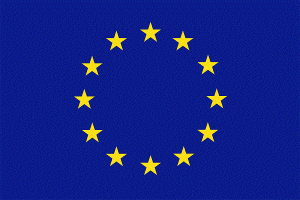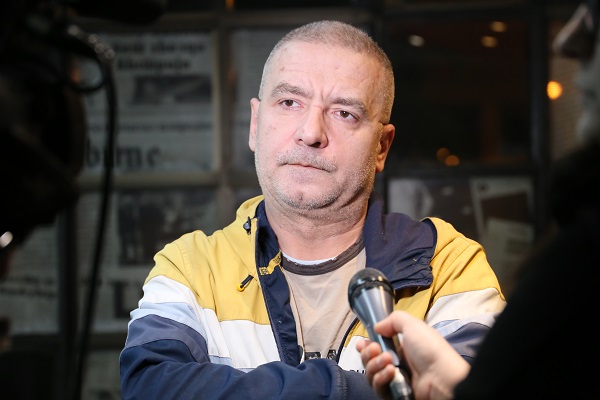SKOPJE, 09.11.2018. – Stole Naumov, a journalist with many years of experience and a former member of the Broadcasting Council, in an interview for CIVIL Media speaks about the situation with journalism in Macedonia, and about the problems and challenges that journalists and the media face.
CIVIL Media: What do you mean by freedom of expression, media freedom and activism?
Naumov: This is not a dull question, this is a question that should always be raised, because conquering freedom is not an ad-hoc or acute process. It is always a chronic situation that says that whoever is in power will try to cover, conquer space that should be free. The fight for freedom is work that never ends, endless, and journalists and NGO’s and all those who are concerned need to be loud, need to be present in the public, to speak and only in this way can we maintain a decent level of freedom. It is much easier perhaps to win the freedom from an entity, from an institution, from a government that has captivated freedom and the entire space and all the institutions and the entire country. It is much easier to win than maintain freedom. So there is no surrendering, no taking it easy, whereas the greatest enemy of freedom is calmness and self-righteousness and the consolation that now we have achieved something. It is a never-ending struggle that constantly demands
loudness, constantly demands talking, constantly demands annoying those who have the power and the opportunity to occupy, maybe not the entire freedom, but the spaces that should be governed by freedom.
CIVIL Media: In what way do you support or can support freedom of speech and media freedom?
Naumov: With loudness, by speaking. It is better to speak, even if it’s wrong sometimes. That noise actually irritates those who can attack the freedom and makes them a bit more cautious in their steps. There is no remedy for freedom of expression, except for noisiness. Noisiness, on the other hand, assumes integrity not only among journalists, but also among citizens in general. But that integrity at such times is always tied with money, with survival. When we speak about freedom, a person who is existentially dependent from something cannot be free. All these things that have been happening to us lately are linked with clientelism, with existence. Something that cannot be bought with less money can be bought with more money. After all, that is the essence, when some decent existence is provided in a system, like let’s start with journalists, that is when a journalist is freer. When we talk about censorship, we do not mean only problems with the government and the system. There are other types of censorship as well. For instance, more advanced societies do not face government pressures. There you can flay politicians without a problem, however, they have other types of pressures that are called, for instance, commercial censorships. A commercial censorship from the perspective that the one who gives money for an advertisement, in some way also buys you to keep quiet. That distinction of the marketing and advertising of those who are creating the information and writing it, is also an important thing, and will be very difficult to establish. They pay not for you to write positive about them, but for you to keep quite. In developed democracies, those who pay are aware that they cannot buy a moment when they make a mistake, that they will receive correct information from those who they advertise to keep silent, that someone will call to ask. And they realize that advertising, after all, is not buying the sympathy of the media and the journalists, but a fair attitude towards everything they do. And most certainly, defense from unfair competition. It is a bit idealistic, but they still are ideals to which we should strive.
CIVIL Media: Do you face pressures from political and business centers of power and how do you deal with them?
Naumov: There are always pressures. Journalism is not an easy job. It is not automatic work until 3.00 pm, and then I go home. Real journalism is always difficult. It demands a mining effort of digging, of continuous investigation, continuous alertness, and there are no working hours. Those who are entering journalism and think that they will be at ease, are misleading themselves. There is
no journalism that is at ease. After all, that is the charm of the profession. What would we be doing in this profession if it were any different.
There are pressures, but the important thing is the what kind of an approach the journalist has, but also the media. If you take them so seriously and for granted, then you will never be a journalist. Then you will be something else, or a person who uses the journalistic profession as a springboard to enter the administration, to enter a business company.
Journalism is a wonderful profession, if the conditions for its existence are somewhat settled, and if a person is a bit bolder to face those challenges. The satisfaction, ultimately, is much greater if you are uncompromising. Because, after all, all those who make the pressure respect those who do not succumb to the pressure much more than they do those who serve to their pressures.
CIVIL Media: What are your recommendations in the context of the fight for free media?
Naumov: All those who are in journalism should think with their own heads, and another moment also needs to be taken into consideration. We are still leading some medieval debates on journalism. Technology is very fast and confuses many people. The future of journalism will certainly not be as it was five years ago, ten years ago, or as it is today. Those new technologies will not minimize the role of journalism, we come to think that the media will die out, that everything will be Twitter and Facebook. At the end of the day, someone will have to analyze all those things that are written on Twitter and Facebook. I read somewhere that future professions will be those that will know how to make analyses of all those data, and that will come out with a position and with a conclusion. Journalists will have to be those who will make analyses and who will have to write. Real journalism is not pajama journalism, sitting and writing from home. It needs to be developed, investigated. Journalism as a profession cannot cease to exist. It might be in another form, in another scale and in another way, but it will continue to exist.
Маја Ivanovska
 This project is financed by the European Union through the small grants program “Protecting Media Freedom and Freedom of Expression in the Western Balkans”, implemented by the Croatian Journalists Association, as part of the regional project “Western Balkan’s Regional Platform for Advocating Media Freedom and Journalists’ Safety”, implemented through a partnership of six regional journalist associations – Independent Journalists’ Association of Serbia, Association of Bosnia-Herzegovina Journalists, Croatian Journalists’ Association, Association of Journalists of Kosovo, Association of Journalists of Macedonia and the Trade Union of Media of Montenegro.
This project is financed by the European Union through the small grants program “Protecting Media Freedom and Freedom of Expression in the Western Balkans”, implemented by the Croatian Journalists Association, as part of the regional project “Western Balkan’s Regional Platform for Advocating Media Freedom and Journalists’ Safety”, implemented through a partnership of six regional journalist associations – Independent Journalists’ Association of Serbia, Association of Bosnia-Herzegovina Journalists, Croatian Journalists’ Association, Association of Journalists of Kosovo, Association of Journalists of Macedonia and the Trade Union of Media of Montenegro.









